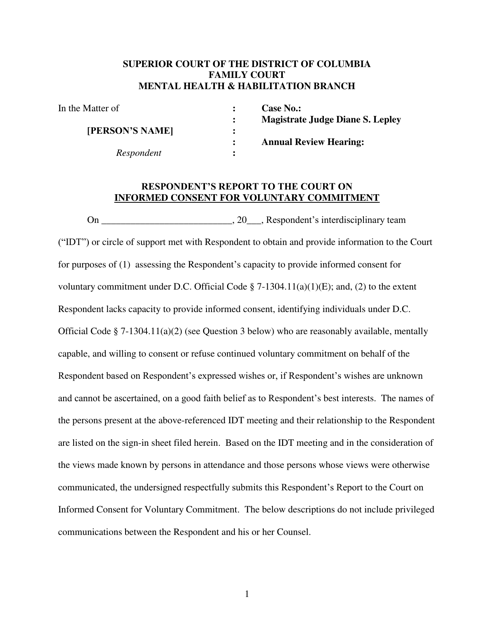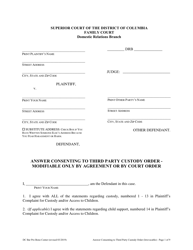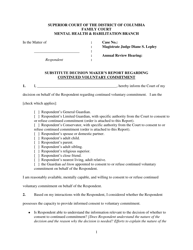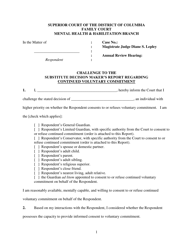Respondent's Report to the Court on Informed Consent for Voluntary Commitment - Washington, D.C.
Respondent's Report to the Court on Informed Consent for Voluntary Commitment is a legal document that was released by the District of Columbia Courts - a government authority operating within Washington, D.C..
FAQ
Q: What is the purpose of the Respondent's Report to the Court on Informed Consent for Voluntary Commitment?
A: The purpose is to provide information regarding informed consent for voluntary commitment to the court.
Q: What is voluntary commitment?
A: Voluntary commitment refers to a person choosing to enter a mental health facility for treatment without being forced or involuntarily committed.
Q: Why is informed consent important in voluntary commitment?
A: Informed consent ensures that the person entering the mental health facility is fully aware of the treatment they will receive, their rights, and the possible risks involved.
Q: Who prepares the Respondent's Report?
A: The Respondent's Report is prepared by the respondent, who is typically the person seeking voluntary commitment.
Q: What information should be included in the Respondent's Report?
A: The Respondent's Report should include details about the person's condition, why they are seeking voluntary commitment, their understanding of the treatment, and any alternative options considered.
Q: What happens after the Respondent's Report is submitted?
A: After the Respondent's Report is submitted, the court will review the information provided and make a decision regarding the person's request for voluntary commitment.
Q: Can the court deny the request for voluntary commitment?
A: Yes, the court has the authority to deny a person's request for voluntary commitment if they believe it is not in the person's best interest or if there are other alternatives available.
Form Details:
- The latest edition currently provided by the District of Columbia Courts;
- Ready to use and print;
- Easy to customize;
- Compatible with most PDF-viewing applications;
- Fill out the form in our online filing application.
Download a printable version of the form by clicking the link below or browse more documents and templates provided by the District of Columbia Courts.

















